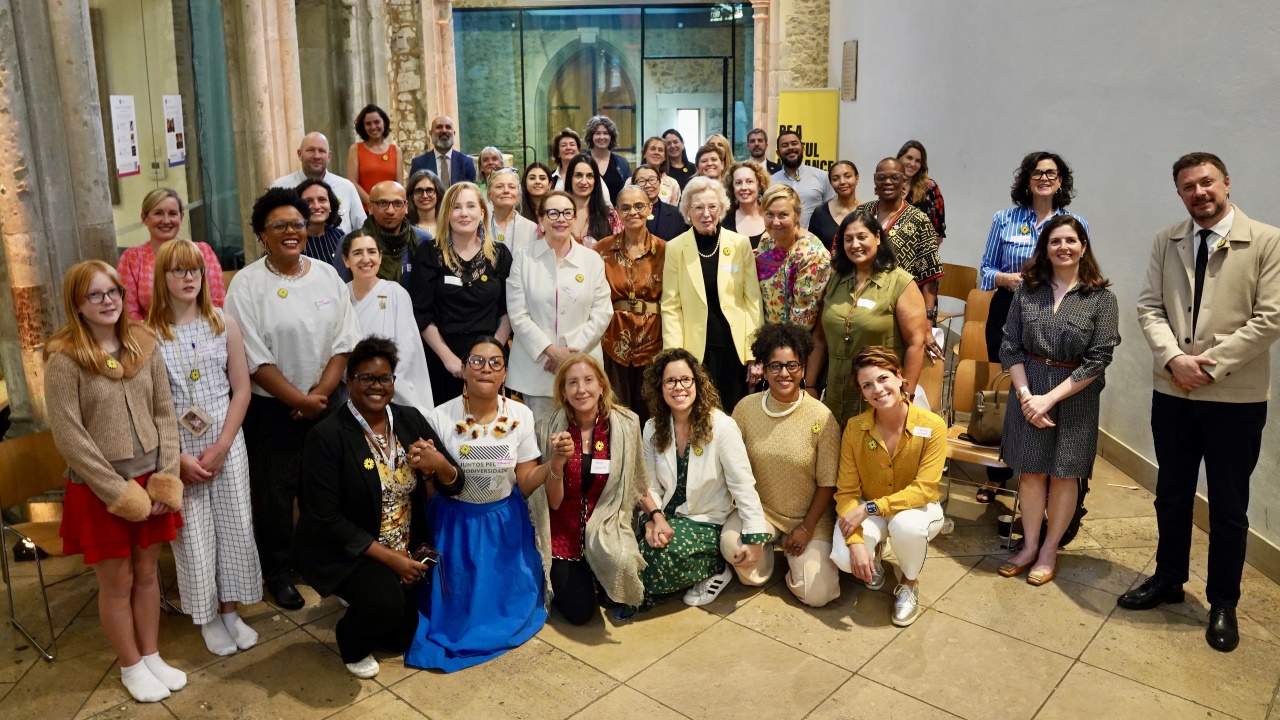Global Ethical Stocktake holds first self-organized dialogue in London
Meeting, led by civil society organizations, initiates a global mobilization process to address the ethical imperative of tackling climate change

From MMA | Ministry of the Environment and Climate Change
During London Climate Action Week in the UK, the first self-organized Global Ethical Balance (BEG) dialogue took place, one of the key themes for COP30, the UN Climate Conference taking place in Belém (PA) in November.
Co-led by President Luiz Inácio Lula da Silva and U.N. Secretary-General António Guterres, the GES is rooted in the ethical imperative of addressing climate change, aiming to reflect this principle in COP30 negotiations. The initiative will unfold through Regional Dialogues scheduled until October on different continents — the first, representing Europe, took place last week in London — and Self-Organized Dialogues, promoted by civil society organizations and national and subnational governments, following the same methodology and principles as the central process.
The aim is that, alongside the official dialogues, self-organized meetings will be replicated globally, creating a wave of momentum for climate action to limit the average global temperature rise to 1.5°C above pre-industrial levels and implement the agreements forged over the past decade since the signing of the Paris Agreement.
The first Self-Organized Dialogue of the GES was led by Mary Robinson, former President of Ireland and co-organizer of the European Dialogue of the GES. It gathered approximately 40 participants, including political, Indigenous, and religious leaders, activists, and civil society representatives. Also in attendance were Marina Silva, Minister of the Environment and Climate Change; Ana Toni, COP30 CEO; and Marcele Oliveira, the conference’s Youth Champion.
The event took place at the headquarters of St. Ethelburga's Peace and Reconciliation Center, formerly a church that was attacked by the Irish Republican Army (known as the IRA) in 1994. It was run by St. Ethelburga's Centre for Reconciliation and Peace together with Project Dandelion, an organization run by women working for climate justice, and the Women, Faith and Climate Network, which gathers leaders from different religions with the common goal of addressing climate change.
Through collective reflections, a welcoming and sensitive atmosphere was created, which allowed participants to share their different perspectives on the urgency of tackling the causes and impacts of the climate crisis, which is already affecting all countries and exacerbating inequalities of class, gender, and race.
In her speech, Marina Silva stressed the need to place ethics at the heart of the climate debate. “As I watched the presentations, I kept thinking: how good it would be if our negotiators could see what has been presented here: words like love, solidarity, commitments, and responsibility for what is decided,” she said. “May this Ethical Review and all of us be a kind of prayer for the world to commit to protecting life and the conditions in which it was created.”
For Ana Toni, the “Global Ethical Balance is the soul of COP30, and we need to show everyone that it's here”. “We're at a stage where everyone acts logically and tactically, and we don't allow ourselves to feel,” she said. "As negotiators, politicians, mothers, human beings, we need to change. I hope COP30 achieves a lot in the negotiations— we have to. But above all, if we can touch people and bring to them the feeling we have experienced here, I think we will mobilize billions of people. If not now, then very soon."
"I hope that the six formal dialogues—one on each continent—will generate hundreds of other self-organized dialogues to bring a wave of public opinion to COP30," said Robinson. "We are grateful for Marina Silva’s leadership in proposing this Global Ethical Stocktake initiative, and I encourage everyone to carry this work forward, gathering communities from all walks of life and adding their voices to this vital process."
Ecological Transformation
The goal is for the discussions emerging from the Regional and Self-Organized Dialogues to help align the framework and negotiation processes within the official calendar of the United Nations Framework Convention on Climate Change (UNFCCC) with the urgent mission of implementing the climate agreements forged in the last decade.
In particular, those stemming from the United Arab Emirates Consensus, which emerged from the first Global Stocktake of the Paris Agreement at COP28 in Dubai. Through that consensus, 196 countries committed to aligning actions to remain below the 1.5°C target. The key measures outlined include tripling renewable energy capacity, doubling energy efficiency, and advancing a just and planned transition away from fossil fuels and deforestation.
At the heart of the initiative lies the recognition that no technical solution can be truly effective without changes in behavior and collective societal pathways. The Global Ethical Stocktake seeks to foster the cultural values necessary for the ecological transformation needed to ensure humanity’s future on the planet in the face of the climate crisis.
The initiative will culminate in six regional reports and a single synthesis report to be presented to Heads of State and negotiators during the Pre-COP in October. The results of the process will also be showcased in a dedicated space at the conference in Belém.
English Version: Trad. Bárbara Menezes.
Proofreading by Enrique Villamil.
